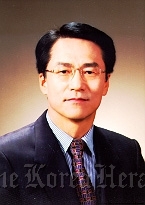 |
Lee Kyung-tae |
President of Institute for International Trade, Korea International Trade Association
2011 is a landmark year for trading companies in Korea. This is because Korea is expected to become the ninth country in the world to achieve one trillion dollars in trade volume this year. Amid the shortage of resources and technology, this accomplishment was made possible by Korea’s driven work force just 23 years after its trade volume surpassed the $100 billion mark. Considering it took France, U.K. and Japan over three decades to grow from $100 billion to 1 trillion in trade, Korea’s achievement is most certainly remarkable.
Despite widespread political unrest in North Africa and Middle East, increase in raw material prices and volatile exchange rates, Korea is optimistic about turning this vision into reality because FTAs have contributed to uncovering new growth engines over the years. In particular, the Korea-EU FTA, which will take effect on July 1, is receiving considerable attention as many Koreans have high hopes the agreement will substantially increase exports and mark a big step forward in Korea’s transition into the developed world.
The Korea-EU FTA is the first trade agreement Korea has signed and will implement with a major economic bloc. Given the EU’s status as the world’s largest economy and import market, exports are projected to rise following implementation. In addition, duties on virtually all products are to be eliminated over the next five years, thus the agreement is being upheld as an exemplary model of free trade. This is all the more important for Korean exporters since Korean products account for a mere 1.0 percent of market share in the EU. This figure is lower than that of China (7.1 percent), Japan (1.6 percent), and Korea’s global market share which currently stands at 3 percent.
The EU market also holds significant brand value. It is true the EU has been affected by the aftermath of the global financial crisis, but alongside the United States, it remains as a powerful player among advanced economies. If we can make a mark in the EU market, one that requires world-class technology, quality and environmental standards, Korea can make progress towards reaching its national goal of Korea Premium. Such impact will not only prove favorable in the EU market, but also help Korea enhance the image of its products in other markets. Moreover, the Korea-EU FTA can potentially resolve trade deficits Korea has long encountered with Japan. There is a consistent overlap of machinery imports from the EU and Japan, and the EU’s competitiveness in chemicals and component materials does not fall behind in any aspect in comparison to Japan.
Furthermore, duties will be reduced or eliminated under the Korea-EU FTA, resulting in increased availability of affordable high-quality products in the Korean and EU market, benefiting not only our industries, but our consumers. Finally, such benefits will drive growth in trade of services, as well as goods. The recent K-pop boom in Paris has been much talked about in Korea, and the Korea-EU FTA will continue to open more doors for us to gain a deeper mutual understanding of our rich culture and heritage. This is why FTAs go beyond economic and commercial frontiers; they are also our valuable messengers of culture.
By Lee Kyung-tae








![[Today’s K-pop] Blackpink’s Jennie, Lisa invited to Coachella as solo acts](http://res.heraldm.com/phpwas/restmb_idxmake.php?idx=644&simg=/content/image/2024/11/21/20241121050099_0.jpg)